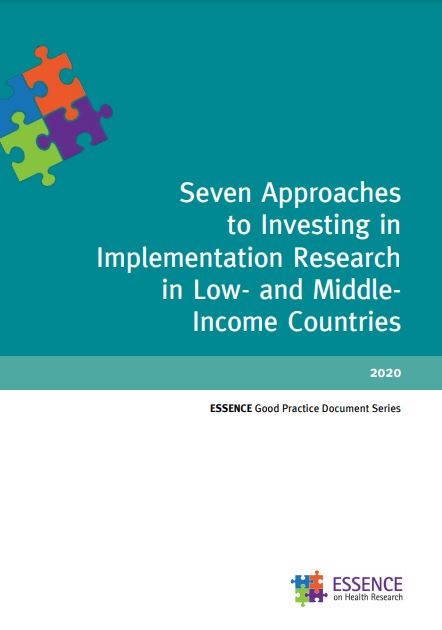Seven approaches to investing in implementation research in low- and middle- income countries
ESSENCE Good practice document series

Overview
This document arose from the recognition that, by sharing good practices, funding and research organizations can enhance the ways in which they invest in implementation research (IR) as well as build capacity in low- and middle-income countries. Although the ESSENCE group focuses primarily on health research, its members hope that these approaches will be shared across other areas of research as well.
In this document, we attempt to respond to questions raised by funders and researchers about how to seed and sustain IR in LMICs. Based on a literature review and an analysis of responses to a survey we conducted, as well as interviews with key informants, we highlight seven approaches for organizations to consider when investing in IR.
The approaches offer some broad direction for funding organizations, research institutions and researchers. One or more case studies are included with each approach to help provide further information and inspiration from existing IR programs. A selection of training resources is also included at the end of the document.

